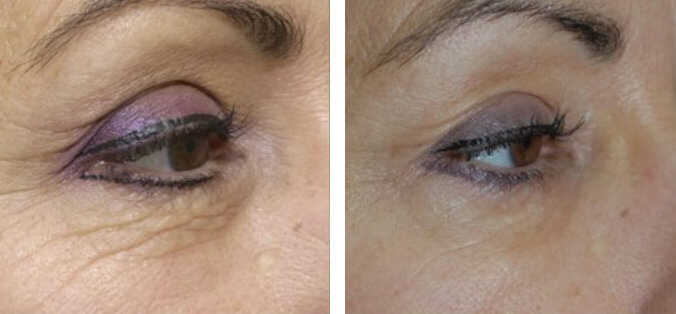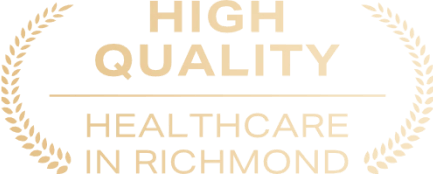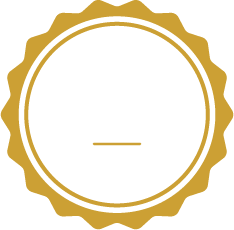Collagen. We have all heard about it, we know that the quality of our skin depends on it, some of us think that using expensive skincare creams can boost it and a few of us even drink it, but do you really know what collagen is and more importantly, how to look after your own?
Collagen is a hard, insoluble, fibrous protein made by specific cells in our body. After it is made, collagen molecules group together to form fibres. These fibres are extremely strong, and gram for gram can be stronger than steel. This characteristic makes collagen the perfect scaffold to act as support for tissues and anchors the cells together.
Collagen is the most abundant protein in the body and is a vital component of our bones, tendons and joints. When it comes to the skin, collagen is a crucial component of the dermis layer providing strength and a network for other cells thrive and grow. This is why having healthy and sufficient collagen is vital for healthy skin.
Unfortunately, from the time we hit our mid-twenties we produce less collagen with a decrease of 2% per year and it comes as no surprise that in our early 30’s we first start noticing the signs of visible ageing: fine lines, wrinkles and sagging.
It gets worse though. Sun exposure and UV radiation breaks down collagen and as the body tries to replace collagen, strands of collagen are weaker from the effects of sun damage. Over time, the damage accumulates and our skin begins to sag and appear thin.
Environmental pollution also wrecks our skin, and for those of us who live in cities, with higher levels of pollution, our skin can be ageing up to 20% faster than those who live in the countryside.
There are also a few lifestyle habits that ravage collagen. Cigarette smoke is full of poisonous chemicals which degrade collagen and damage DNA. Consuming high quantities of sugar, accelerates the process known as glycation: when sugar molecules bind to collagen and cause it to become dry, brittle and prone to breakage.
To add insult to injury, the menopause also takes its toll on collagen. Oestrogen stimulates collagen production and the precipitous drop in oestrogen levels after the menopause can result in a loss of up to 30% of a woman’s collagen in less than 5 years.
Now for the good bit. Modern science has advanced in finding solutions to support our collagen production. Here are the solutions I recommend to boost your collagen:
1. You can drink it.
Collagen supplements have taken the media by storm. There is a plethora of collagen drinks, powders and supplements each claiming to boost collagen levels. My personal favourite is Skinade. This daily drink contains 7000mg of marine collagen fragments which are absorbed by the digestive tract and stimulate the body produce more of our own collagen. Each drink also contains the daily recommended dose of Vitamin C which is a crucial enzyme needed for collagen production. Skinade has been shown to work wonders, with scientific studies demonstrating a 25% increase in collagen after only 90 days use. The best bit? Skinade has a lovely peach flavour and is only 35 calories.
2. You can make your body do all the work.
We are constantly making our own collagen, especially after any injury or trauma, it is part of the normal healing process. Micro-needling is a treatment which uses tiny needles to penetrate the skin hundreds of times per minute to cause micro-traumas. Our body wants to plug these microscopic holes with new collagen and our skin goes into healing over-drive. It is a great treatment for skin-tightening, reducing acne scars and improving stretch marks.
3. You can heat it up.
Collagen is a protein and all proteins are susceptible to change depending on temperature. If we heat collagen to above 40 degrees Celsius, the fibres tighten and strengthen. Radio-frequency devices deliver controlled amounts of heat energy to the dermis, where most of our collagen can be found to manipulate the structure of the present collagen to be tightened. This is a great treatment option to tighten the face for those of us who prefer non-invasive treatments with little to no downtime.
4. You can use light.
Strictly speaking, I mean a special type of laser called Fraxel. This devices creates columns of micro-trauma surrounded by normal skin. As the body rushes to close these columns, more collagen is produced locally. This is a fantastic treatment for resurfacing stubborn wrinkles and acne scarring. There is a some downtime but it is definitely worth it.
5. You can protect what you have.
Modern life is hard on our skin. Pollution, smoking and alcohol all cause collagen to be degraded. Instead of detoxing for weight loss, detox for skin health. Reduce your sugar intake and boost your intake of omega acids, fish oils and vitamins. Use copious amounts of sunblock, DAILY, and fight free radicals with Vitamin C and E serums. Most women older than 30 would also benefit from using retinol at night, which does wonders for collagen, skin tone and acne.
As you can understand, collagen is vital for skin and tissue health and by protecting the collagen we have and stimulating collagen production as we age, our skin’s health will be optimal and youthful. Collagen is not only important for the skin we can see, it is also important for the tissues of our organs and bone health.
At Bodyvie, we offer consultations with our doctors and aestheticians to help you get your collagen back on track to look and feel your best! We can help you find the best solution for unique needs and lifestyle.














I recently started taking a collagen supplement and it does work, I take it in the morning before work. You won’t see results instantly but in time results will show through
I believe in the body restoring itself and will definitely be taking these tips to help preserve my collagen. I have started seeing the sagging skin under my eye and I am not too happy about that I do think that I will need to lower my alcohol intake and take Omega supplements as that seems to be the more “organic” route.